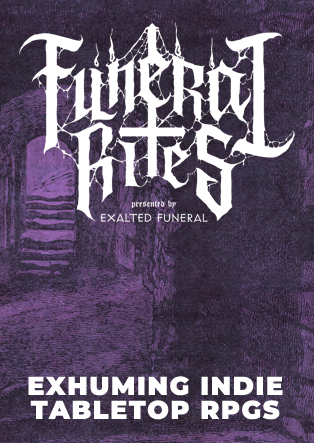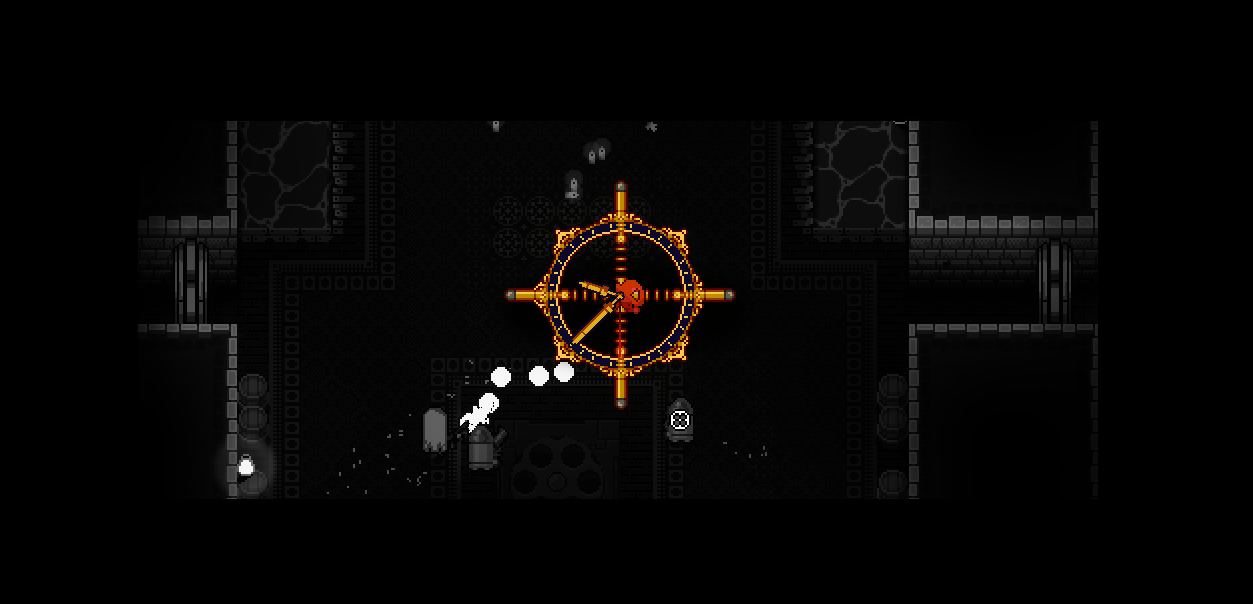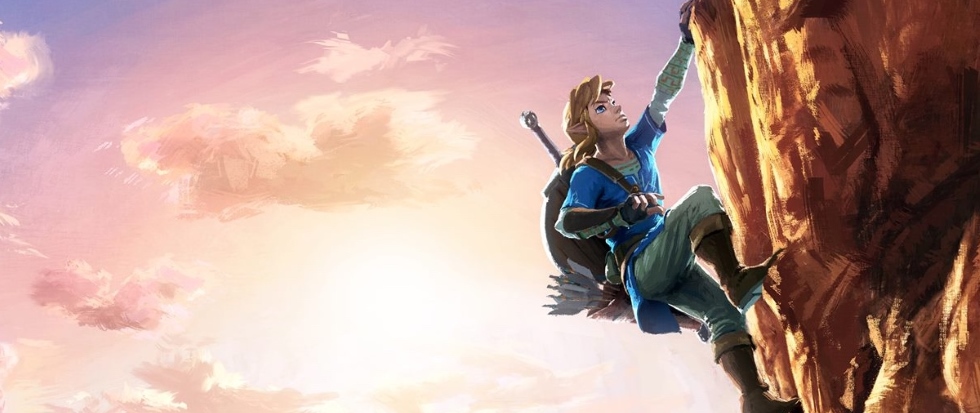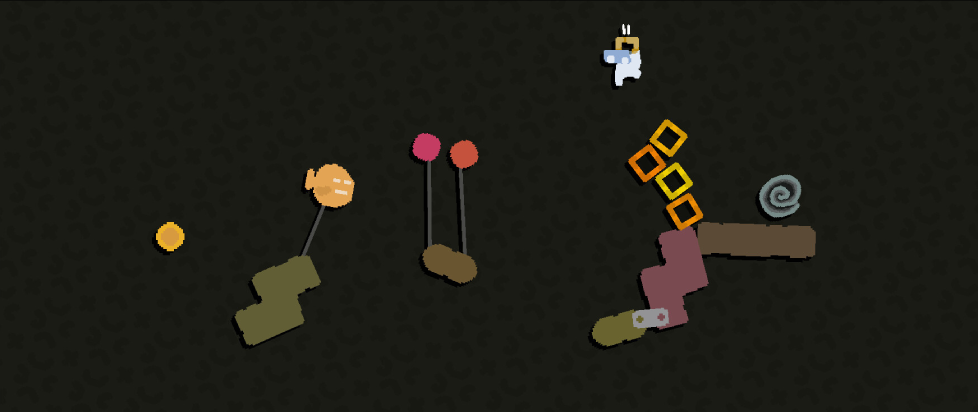
(Sometimes) Literally Unwinnable
Mosa Lina is a hostile game. It presents you with a random selection of nine levels, and a random selection of nine tools, three of which will be rolled – at random – each time you enter a level. This stacking of chance on top of chance means it’s possible to end up with a series of levels you’ll never be able to beat, and you won’t know until you try.
Nothing is explained, and the tools you use to approach the physics puzzles are obtuse. Genre familiarity might help me out when I get a stack of cubes, but a flopping fish and a gun that shoots a second, smaller gun have less immediate uses. For every interesting interaction I’ve discovered, there’s something where I’m certain I’ve missed something obvious about how a tool is meant to be useful.
It would be easy for Mosa Lina to feel adversarial – that it’s hiding its secrets, and withholding its victories, and challenging me to conquer it as an opponent. But instead, its hostile components paradoxically build something where it feels like we’re on the same team: working together in the spirit of following curious impulses, and quashing stress-inducing perfectionist ones.
It is impossible to frustratedly try the same thing over and over again in Mosa Lina. When you reset a stage, or fail it by touching a hazard or falling off the map, you’re pinged to another level you haven’t finished yet. When you come back to that first stage, it will be with a new set of tools, so you can’t re-attempt the same approach twice. Even on final levels, where you do repeat the same stage, your tools are still constantly refreshing.
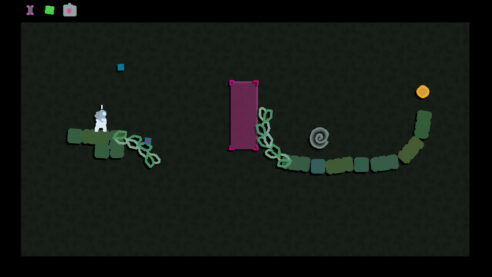
There’s nothing else to do but experiment – not in tiny, incremental changes to a fixed strategy, but in huge leaps that unlock new ways of understanding how its world works, or how a level might be manipulated. If there’s always a chance that this level wasn’t going to be winnable anyway, what will I learn if I try something absurd, or risky, or pointless?
Removed from serious metrics and rewards, there’s a pleasant pointlessness to winning. When you finish a stage, you get points based on things like completing it on your first or second try, or with fewer jumps, but also bonus points of “yes” and “I love you” and “as expected”. There’s not enough you can do “right” to make chasing a score take up mental space. It’s just enough to get that moment of recognition before you zip to the next stage.
Whenever you lose a few stages in a row, Mosa Lina reminds you that your roll may not be winnable, before letting you continue or choose to re-roll. Neither an insistent challenge or a game over screen, it lets you engage on your own terms. It’s this stance that makes Mosa Lina’s hostile design so freeing: You may not be able to win, and it may be pointless if you do, so try something anyway, for the sake of doing it.
———
Ruth Cassidy is a writer and self-described velcro cyborg. They can be found in various places at linktr.ee/ruthvcassidy.
